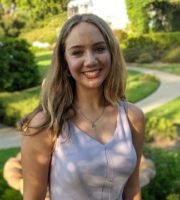
Details remain light on new minor
Faculty members at Duke University recently approved a proposal to create a new minor in “Inequality Studies.”
The Arts and Sciences Council at the private university in North Carolina voted in support of the new minor on September 24, according to the campus paper, The Chronicle. The council represents the school’s Trinity College of Arts and Sciences.
It will be housed under the history department and will include a collaboration with the university’s Samuel DuBois Cook Center on Social Equity, according to the paper.
The Cook Center said it expects the minor to start in the spring, according to an October 8 news release.
The center said it was “excited to announce the approval” of the minor, but did not clarify in its post if the university approved the minor or if it was just reiterating the September 24 faculty approval.
Lucas Hubbard, the author of the post, did not respond to an email from The College Fix seeking clarification on Monday.
Details on the new minor remain light.
None of the professors contacted by The Fix responded to emailed requests for comment or supplied information.
MORE: Duke University to pay $112.5 million for faking scientific research data
Professor William Darity, the director of the Cook Center, declined to comment, telling The Fix via email that “I don’t view your outlet as a platform that makes inquiries in good faith” and said he was “not willing to be interviewed.”
Duke’s media relations office did not respond to multiple emailed requests in the past week seeking information on the next steps in the process and what students would learn in the new minor.
Malachi Hacohen, a sponsor of the proposal and a professor of history, referred The Fix to the Cook Center for comment.
Hacohen told the Chronicle that he is glad to work with the Cook Center.
“There are a few other places where you have those sources, and the history department is only too happy to have this group of experts come and work with us,” he said.
The minor would cover several different courses from the Cook Center, which focuses on taking a “cross-national comparative approach to the study of human difference and disparity,” in conjunction with Duke courses in a variety of fields, according to the center’s description.
However, some professors raised objections about how the minor would balance the minor’s “coherency” with diversity and the “breadth of study,” according to the Chronicle. Others raised questions about the proliferation of minors and overlap with other minors.
The College of Arts and Science currently offers a variety of minors, including minors in African and African American Studies, cultural anthropology, cultural studies and sociology.
Duke University is not the only institution to offer a minor in inequality.
For example, Cornell University offers an Inequality Studies minor. The school described it as “appropriate for students interested in public and private sector employment, policy, and civil society,” and “those who wish to pursue graduate and professional degrees in a variety of fields.”
Required courses include topics on race and sociology.
The University of Chicago also offers a minor in “Inequality, Social Problems, and Change.”
The minor gives “students the opportunity to deepen their understanding of the nature of inequality as it takes shape in pivotal societal institutions” and gives them the ability “to formulate feasible pathways for reducing inequality and improving quality of life.”
Courses include classes on community organizing, policing and immigration.
MORE: Two University of Michigan seniors create minor in ‘social class and inequality’
IMAGE: StanislauV/Shutterstock
Like The College Fix on Facebook / Follow us on Twitter






Please join the conversation about our stories on Facebook, Twitter, Instagram, Reddit, MeWe, Rumble, Gab, Minds and Gettr.